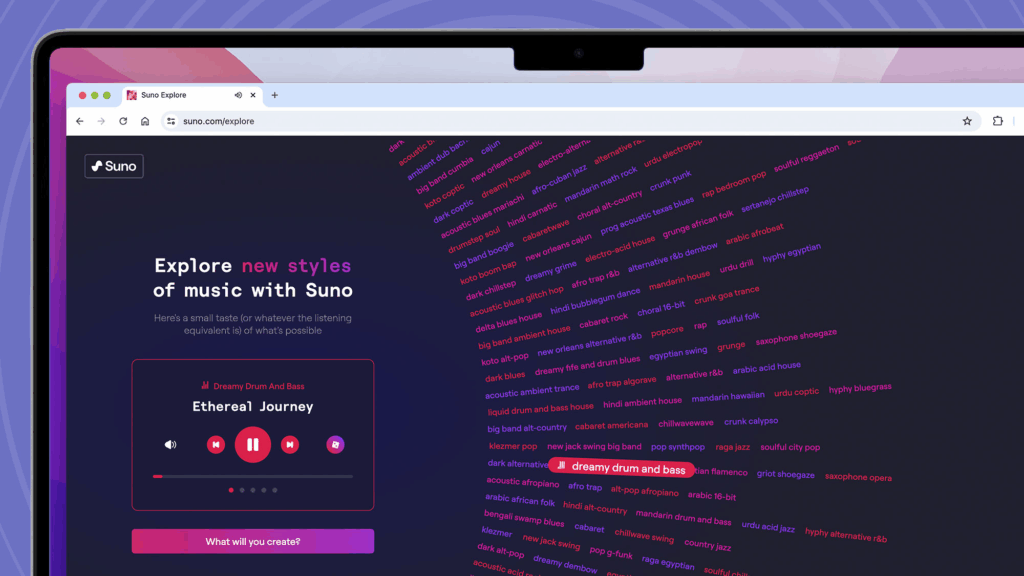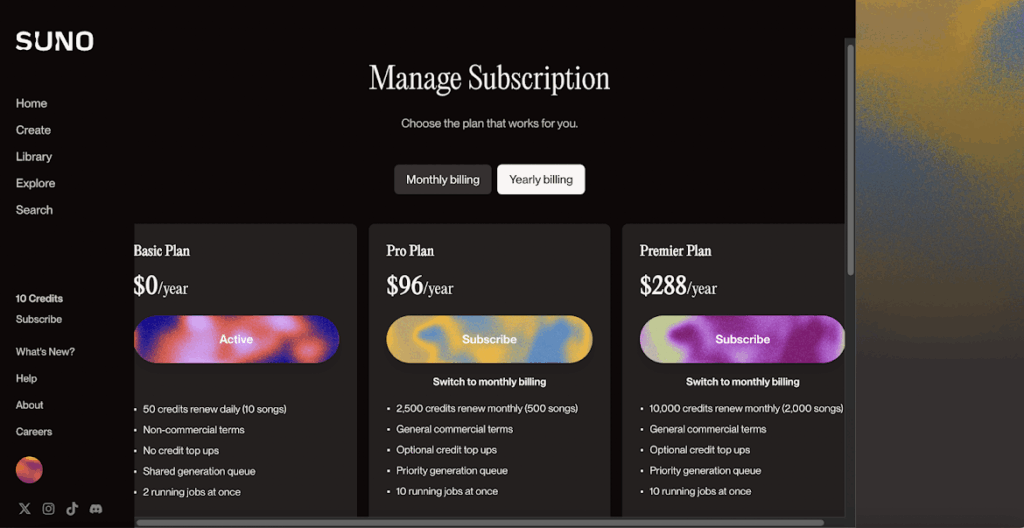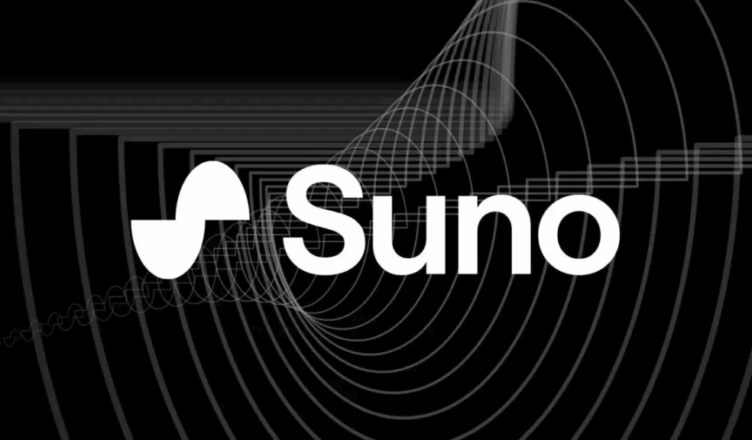Suno AI Review 2025: The Future of AI-Powered Voice Generation
The landscape of artificial intelligence has undergone a revolutionary transformation in recent years, with AI-powered tools like Suno AI review 2025 reshaping how we create, consume, and interact with digital content. As one of the most innovative platforms in the realm of AI voice generators and music tools, Suno AI stands out for its ability to produce remarkably human-like audio content. In 2025, it has become a favorite among creators, musicians, and tech enthusiasts seeking professional-grade, AI-generated voice and music solutions.
The evolution of AI audio generation represents a quantum leap from traditional voice synthesis technologies. Where early text-to-speech systems produced robotic, monotone outputs, today’s AI singing voice generator platforms can create emotionally rich, contextually appropriate audio that rivals human performance. This transformation has opened unprecedented opportunities for content creators, musicians, podcasters, and businesses seeking innovative ways to engage their audiences.
Suno AI stands at the forefront of this revolution, offering a comprehensive suite of AI-powered voice and music generation capabilities that have redefined what’s possible in digital audio creation. As an AI song cover maker and versatile audio generation platform, it represents the cutting edge of artificial intelligence applications in creative industries.
What is Suno AI?

This Suno AI Review 2025 explores how the platform differs from other voice synthesis tools by offering expressive, emotionally rich audio content that redefines digital sound production. Suno AI is an advanced artificial intelligence platform specifically designed for voice synthesis, music generation, and audio creation. Unlike traditional AI music makers that focus solely on instrumental compositions, Suno AI specializes in creating realistic vocal performances, singing voices, and complete musical arrangements with human-like expression and emotional depth.
The platform leverages sophisticated machine learning algorithms trained on vast datasets of human speech patterns, musical compositions, and vocal performances. This extensive training enables the AI music generator to understand not just the technical aspects of sound production, but also the nuanced emotional and contextual elements that make audio content compelling and engaging.
What sets Suno AI apart in the crowded field of AI audio generation tools is its focus on accessibility and user experience. The platform is designed to be intuitive enough for beginners while offering advanced features that satisfy professional creators. Whether you’re a podcaster looking to enhance your content, a musician exploring new creative possibilities, or a business seeking innovative marketing solutions, Suno AI provides the tools needed to bring your audio visions to life.
How Suno AI Works: Technical Overview Made Simple

As we dive deeper into this Suno AI Review 2025, it becomes clear how the platform’s technical foundation supports its real-world performance. Understanding the technology behind Suno AI doesn’t require a computer science degree. The platform operates on several key principles that work together to create remarkably realistic audio content.
At its core, Suno AI utilizes neural networks trained on massive datasets of human speech and musical performances. When you input text or musical parameters, the AI analyzes patterns in language, rhythm, pitch, and emotional context. The system then generates audio that matches these patterns while maintaining natural flow and expression.
The voice synthesis process begins with text analysis, where the AI identifies not just words but also context, emotion, and intended delivery style. The system considers factors like punctuation, sentence structure, and semantic meaning to determine appropriate vocal characteristics such as pace, tone, and emphasis.
For music generation, the AI music maker component analyzes harmonic structures, rhythmic patterns, and melodic progressions. It can generate everything from simple backing tracks to complex arrangements with multiple instruments and vocal layers. The AI singing voice generator aspect adds another dimension by creating vocal performances that match the musical content’s style and mood.
The platform’s real-time processing capabilities ensure that users can experiment with different parameters and receive immediate feedback. This iterative approach allows for fine-tuning and customization, making the creative process both efficient and enjoyable.
Key Features and Standout Capabilities in 2025

One major highlight of this Suno AI Review 2025 is the platform’s ability to personalize voice and music generation based on the user’s preferences. Suno AI’s feature set has expanded significantly throughout 2025, incorporating user feedback and technological advances to deliver an increasingly comprehensive audio creation experience.
The platform’s voice synthesis capabilities now support over 40 languages and dialects, each with multiple voice options representing different ages, genders, and speaking styles. The AI voice generator can adapt to various content types, from conversational podcast formats to dramatic audiobook narrations, maintaining consistent quality across all applications.
Music generation features have evolved to support genre-specific creation, allowing users to generate everything from classical orchestral pieces to contemporary pop songs. The AI song maker can create original compositions or generate backing tracks for existing lyrics, offering unprecedented flexibility for musicians and content creators.
One of the most impressive additions is the collaborative creation feature, which allows multiple users to work on projects simultaneously. This functionality has proven particularly valuable for remote teams and creative partnerships, enabling seamless collaboration regardless of geographical location.
The platform’s integration capabilities have also expanded, with native support for popular digital audio workstations (DAWs) and content management systems. This integration streamlines workflows for professional creators who need to incorporate AI-generated content into larger projects.
Advanced customization options now allow users to train the AI on specific vocal characteristics or musical styles, creating personalized AI models that reflect individual creative preferences. This feature has been particularly popular among content creators who want to maintain consistent brand voice across their audio content.
Comparison with Other AI Voice and Music Generators
When conducting this Suno AI Review 2025, it’s evident that the platform offers a more holistic solution compared to ElevenLabs and Musicfy.
| Feature | Suno AI | ElevenLabs | Musicfy |
| Voice Quality | Exceptional natural speech | Industry-leading voice cloning | Good, music-focused |
| Music Generation | Comprehensive | Limited | Excellent |
| Language Support | 40+ languages | 29 languages | English primary |
| Customization | High | Very High | Moderate |
| Pricing | Competitive | Premium | Affordable |
| Ease of Use | Intuitive | Moderate | Beginner-friendly |
| Integration | Extensive | Good | Limited |
While each platform has its strengths, Suno AI distinguishes itself through its balanced approach to both voice and music generation. ElevenLabs excels in voice cloning technology but offers limited music capabilities. Musicfy provides excellent music generation but falls short in voice synthesis quality and language support.
The versatility of Suno AI makes it particularly attractive for creators who need both voice and music capabilities in a single platform. This consolidation reduces the need for multiple subscriptions and simplifies workflow management for professional users.
Real-World Applications Across Industries
This Suno AI Review 2025 wouldn’t be complete without highlighting how the platform supports content creators, musicians, educators, and marketers alike..
Content creators have embraced the platform for podcast production, using AI-generated voices for intro segments, advertisements, and even full episodes when human narrators are unavailable. The consistency and quality of AI-generated content allow for rapid production scaling without compromising audio quality.
Musicians and composers utilize the AI music maker features for inspiration, demo creation, and collaborative projects. The platform’s ability to generate musical arrangements quickly enables artists to explore creative ideas without the time and resource constraints of traditional composition methods.
Educational institutions have found innovative applications for the technology, creating engaging audio content for language learning, historical narrations, and scientific explanations. The multilingual capabilities of the AI voice generator make it particularly valuable for international educational programs.
Marketing and advertising agencies leverage Suno AI for creating compelling audio advertisements, brand voices, and promotional content. The platform’s ability to maintain consistent voice characteristics across campaigns while adapting to different emotional tones has proven invaluable for brand building.
Podcasters and audiobook producers use the platform to enhance their content with background music, sound effects, and additional voice actors. The AI song cover maker functionality allows for creating custom theme music and transitions that perfectly match content themes.
Pros and Cons of Suno AI
Like any technology platform, Suno AI presents both advantages and limitations that users should consider before adoption.
Advantages:
The platform’s most significant strength lies in its user-friendly interface that makes advanced AI technology accessible to creators of all skill levels. The intuitive design reduces the learning curve typically associated with sophisticated audio generation tools.
Audio quality consistently ranks among the best in the industry, with AI-generated voices often indistinguishable from human speech. The emotional range and contextual understanding of the AI singing voice generator create compelling performances that engage listeners effectively.
Versatility remains a key selling point, with the platform supporting diverse content types from musical compositions to spoken word content. This flexibility eliminates the need for multiple specialized tools, streamlining creative workflows.
The platform’s continuous improvement through regular updates ensures that users always have access to the latest AI advancements. The development team actively incorporates user feedback, resulting in features that address real-world creative needs.
Limitations:
Despite its strengths, Suno AI faces certain constraints that users should understand. The platform’s reliance on internet connectivity means that offline usage is limited, which can be problematic for creators working in environments with unreliable internet access.
Processing times for complex projects can be lengthy, particularly during peak usage periods. While the platform has improved its infrastructure throughout 2025, users should plan accordingly for time-sensitive projects.
The learning curve, while reduced compared to traditional audio production tools, still requires time investment to master advanced features. New users may need several sessions to fully understand the platform’s capabilities.
Pricing and Plans: Understanding Suno AI Cost Structure

Understanding how much Suno AI costs requires examining the platform’s tiered pricing structure designed to accommodate different user needs and budgets.
The free tier provides access to basic voice generation features with limited monthly usage quotas. This option allows new users to explore the platform’s capabilities before committing to a paid subscription.
The Personal plan caters to individual creators and small-scale projects, offering increased usage limits and access to premium voice models. This tier includes basic music generation features and standard customer support.
Professional plans target content creators, musicians, and small businesses requiring higher usage volumes and advanced features. These plans include priority processing, extended storage, and access to the latest AI models.
Enterprise solutions provide custom pricing for large organizations with specific requirements. These plans include dedicated support, custom voice training, and integration assistance.
When evaluating how much does Suno cost, consider not just the subscription price but also the value provided through time savings, quality output, and creative possibilities. Many users find that the platform’s efficiency gains justify the investment through increased productivity and creative output.
Who Should Use Suno AI?
The platform’s versatility makes it suitable for a diverse range of users, each benefiting from different aspects of its capabilities.
Content creators, including YouTubers, podcasters, and social media influencers, find the platform invaluable for producing consistent, high-quality audio content. The ability to generate voice-overs, background music, and sound effects streamlines content production workflows.
Musicians and composers benefit from the AI music generator’s ability to provide inspiration, create demos, and generate backing tracks. The platform serves as a creative partner, offering musical ideas and arrangements that might not emerge through traditional composition methods.
Educators and trainers use the platform to create engaging audio content for courses, presentations, and training materials. The multilingual capabilities make it particularly valuable for international education programs.
Business professionals leverage Suno AI for creating marketing content, training materials, and internal communications. The platform’s ability to maintain consistent brand voice across different audio formats supports professional communication strategies.
Developers and tech enthusiasts appreciate the platform’s API capabilities, which allow integration with custom applications and workflows. This flexibility enables the creation of specialized solutions tailored to specific industry needs.
Future Roadmap and Predictions
Looking ahead, Suno AI’s development trajectory suggests continued innovation and expansion of capabilities. The platform’s roadmap includes several exciting developments that will further enhance its utility for creators and professionals.
Real-time voice conversion technology is expected to arrive in late 2025, allowing users to modify their voice characteristics during live streaming or video calls. This feature will open new possibilities for content creators and professional communicators.
Enhanced emotional intelligence in AI-generated content will provide more nuanced and contextually appropriate audio output. The platform’s ability to understand and convey subtle emotional cues will continue improving, making AI-generated content increasingly indistinguishable from human-created audio.
Collaboration features will expand to include real-time co-creation capabilities, allowing multiple users to work on audio projects simultaneously. This development will facilitate remote teamwork and creative partnerships across geographical boundaries.
The integration of visual elements with audio generation will create new possibilities for multimedia content creation. Users will be able to synchronize AI-generated audio with visual content, streamlining the production of videos, presentations, and interactive media.
Mobile applications with full feature parity to the desktop platform will democratize access to AI audio generation tools. This development will enable creators to produce high-quality audio content from anywhere, using only their mobile devices.
Conclusion
Suno AI represents a significant advancement in AI-powered audio generation, offering creators and professionals unprecedented tools for voice synthesis and music creation. The platform’s combination of user-friendly design, high-quality output, and versatile applications makes it a compelling choice for anyone working with audio content.
The platform’s strengths in voice quality, music generation, and ease of use position it favorably against competitors in the rapidly evolving AI audio generation market. While certain limitations exist, ongoing development and user feedback incorporation continue to address these concerns.
For creators, musicians, educators, and businesses looking to leverage AI technology for audio content creation, Suno AI provides a comprehensive solution that balances accessibility with professional capabilities. The platform’s continued evolution suggests that it will remain a relevant and valuable tool as AI technology advances.
As we move forward in 2025, Suno AI’s role in democratizing high-quality audio production will likely expand, making professional-grade audio creation accessible to a broader audience. The platform’s commitment to innovation and user experience positions it well for continued success in the competitive AI audio generation market.
Frequently Asked Questions
Q: Is Suno AI safe to use for commercial projects? A: Yes, Suno AI is designed with commercial use in mind. The platform provides clear licensing terms for generated content, and paid plans include commercial usage rights. However, users should review the specific terms of service for their subscription tier to ensure compliance with their intended use cases.
Q: Can I use Suno AI to create music that sounds like existing artists? A: While the AI music generator can create content in various styles, users should be cautious about creating content that closely mimics existing artists’ work. The platform includes guidelines about ethical use and copyright considerations. It’s recommended to use the tool for inspiration and original creation rather than direct imitation.
Q: How does Suno AI pricing compare to hiring human voice actors or musicians? A: Suno AI typically offers significant cost savings compared to hiring professional voice actors or musicians, especially for projects requiring multiple voices or extensive audio content. However, the choice depends on project requirements, budget constraints, and the desired level of human creativity and interpretation.
Q: What file formats does Suno AI support for output? A: The platform supports standard audio formats including WAV, MP3, and FLAC. Export options vary by subscription tier, with professional plans offering additional format options and higher quality settings. The platform also provides direct integration with popular audio editing software.
Q: Can I train Suno AI to recognize and replicate my specific voice or musical style? A: Advanced subscription tiers include custom voice training features that allow users to create personalized AI models. This process requires providing sample audio for training and typically takes several hours to complete. The resulting custom models can then be used for consistent voice generation that reflects your specific characteristics.
